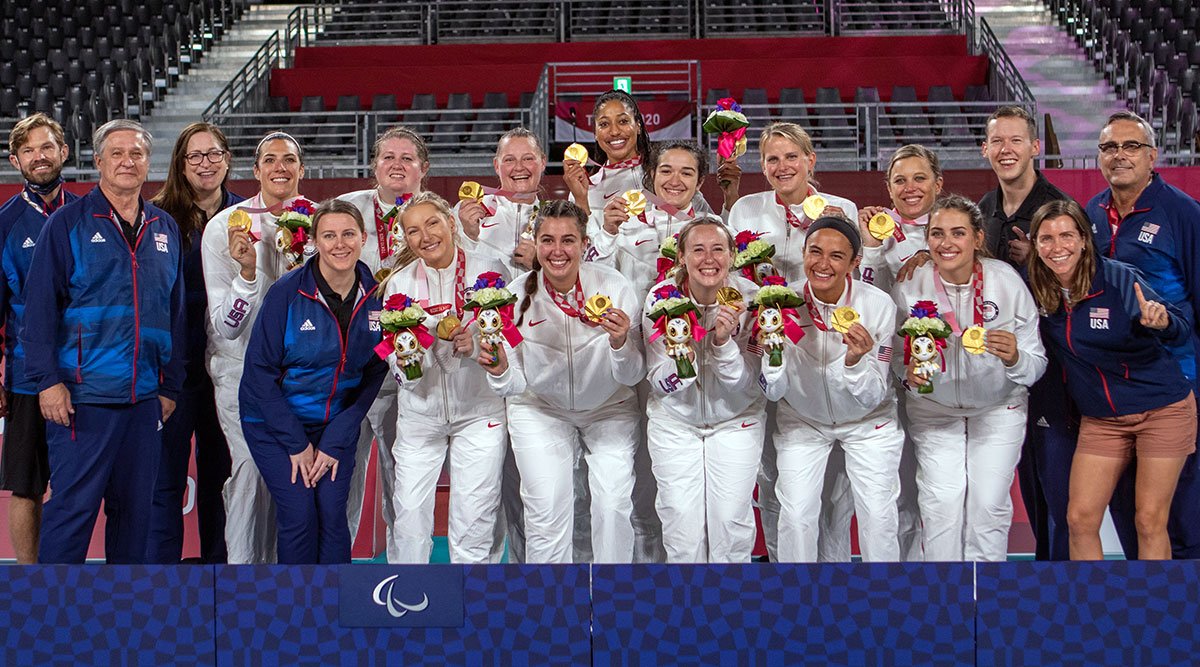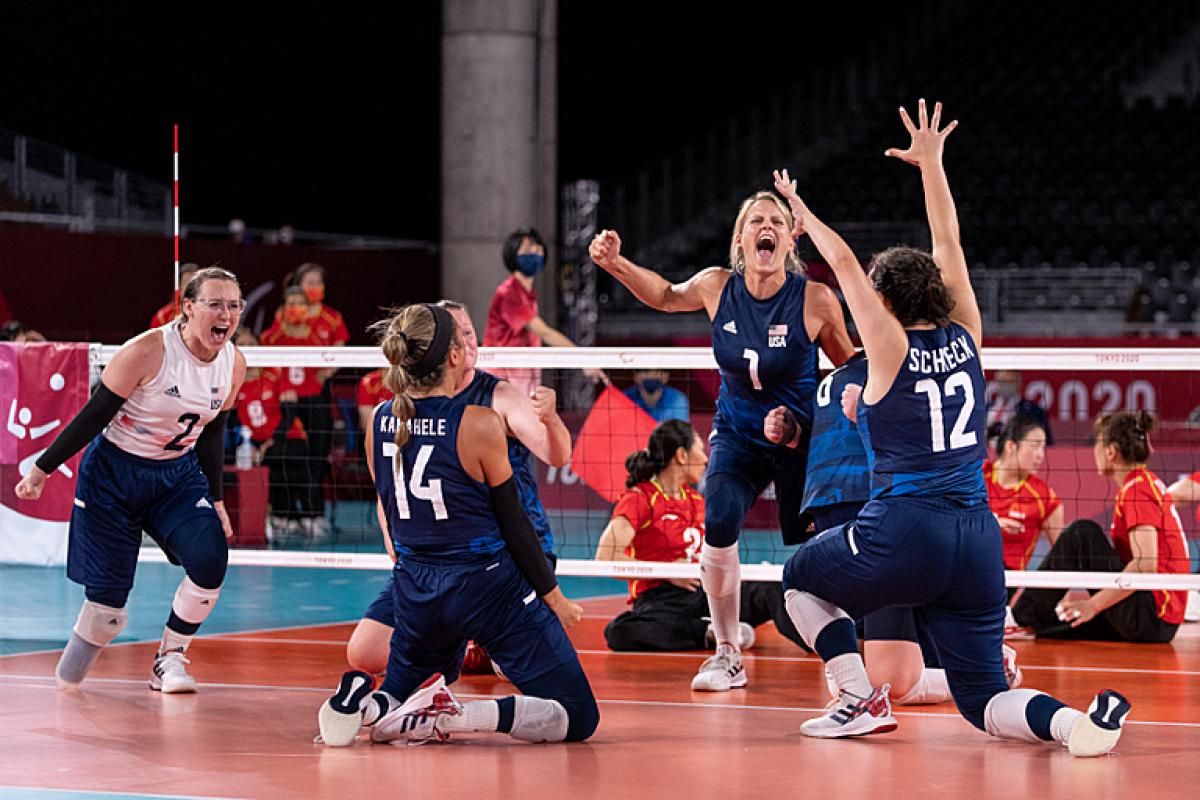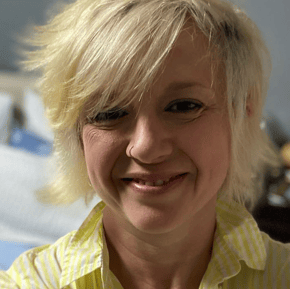
Source: USA Volleyball
Emma Schieck scored the final point in Team USA’s 2020 gold medal game against China, but please don’t call her an Olympian. She is a Paralympian, and she is rightfully proud of this.
After Schieck returned from the 2020 Summer Paralympics as a gold medalist in sitting volleyball, a well-meaning relative told her how proud she was of her being an Olympian. Schieck kindly told her that she appreciated her support, but that she was a Paralympian. This was met with a bless-your-heart pat and resounding reassurance that she would always “be an Olympian” to her.
There was no malice in this statement, and Schieck understood that her relative meant it as a compliment, but what she wanted her family member and the rest of the world to understand is that being a Paralympian is an incredible accomplishment. Full stop.
Adaptive sports, such as those played in the Paralympics, take the same, if not more, dedication and training as conventional sports, but there is a lot less coverage and pay. Schieck would like to change that. “What we’re doing is difficult,” she said.
Schieck admits that she didn’t watch the U.S. National Sitting Volleyball team win the gold medal at the 2016 Rio Paralympics mainly because she didn’t know the team existed. Born with a Brachial Plexus injury that prevents her from straightening or rotating her left arm, Schieck's parents steered her towards soccer when she was younger, but she quickly fell in love with volleyball. During her freshman year of high school, she was approached about playing sitting volleyball. Initially, she balked.
Sitting volleyball, Schieck thought, was an easier version of the sport that she had loved most of her life. She was wrong. She quickly learned that the fast-paced game of sitting volleyball was intense and competitive.
Further, she saw that sitting volleyball was its own sport, not a watered down version of one that is played with a similar ball and net.
This epiphany made Schieck determined to make adaptive sports more visible to the general public. Athletes who play adaptive sports often have to fight for resources and their pay is considerably lower than those playing conventional versions of sports. She wants everyone to learn about and play adaptive sports because she believes that once able-bodied athletes understand how difficult and fun they are that it will help erase the stigma and help get others involved.
At the 2020 games in Tokyo, Paralympic athletes received the same payout as Olympic athletes for winning medals. It was the first time that there was equal payment for Olympians and Paralympians. While this is a start, the discrepancy in pay and endorsements for Paralympians is still startling.
A considerable pay gap is also seen in secular fields. Atticus, a company that helps connect those experiencing crisis with various forms of aid and insurance, reported that disabled workers earned around 42 percent less than workers without disabilities in 2023, and they were 10 percent less likely to receive a raise. This pay gap is the largest in the past decade.
With her platforms as an gold medal winning Paralympian and a Parity athlete, Emma Schiek hopes to continue to raise awareness for Paralympians, adaptive athletes, and disabled workers.

Source: International Paralympic Committee
She may not want you to call her an Olympian, but you can call her determined.
About Parity
Minority-founded in 2020, Parity's mission is to close the gender income and opportunity gap in professional sports. By developing high-impact collaborations between brands, professional women athletes and their fans, Parity has proudly put more than $3.5 million in the pockets of women athletes, attracting dozens of brands to the movement in the process. The platform offers connections to more than 1000 women athletes from 75+ sports, including well over 200 Olympians and Paralympians. For more information on how to tap into the rapidly rising influence and popularity of women athletes, visit https://paritynow.co or follow us on Instagram, LinkedIn, Facebook, X (formerly Twitter) and Threads.




